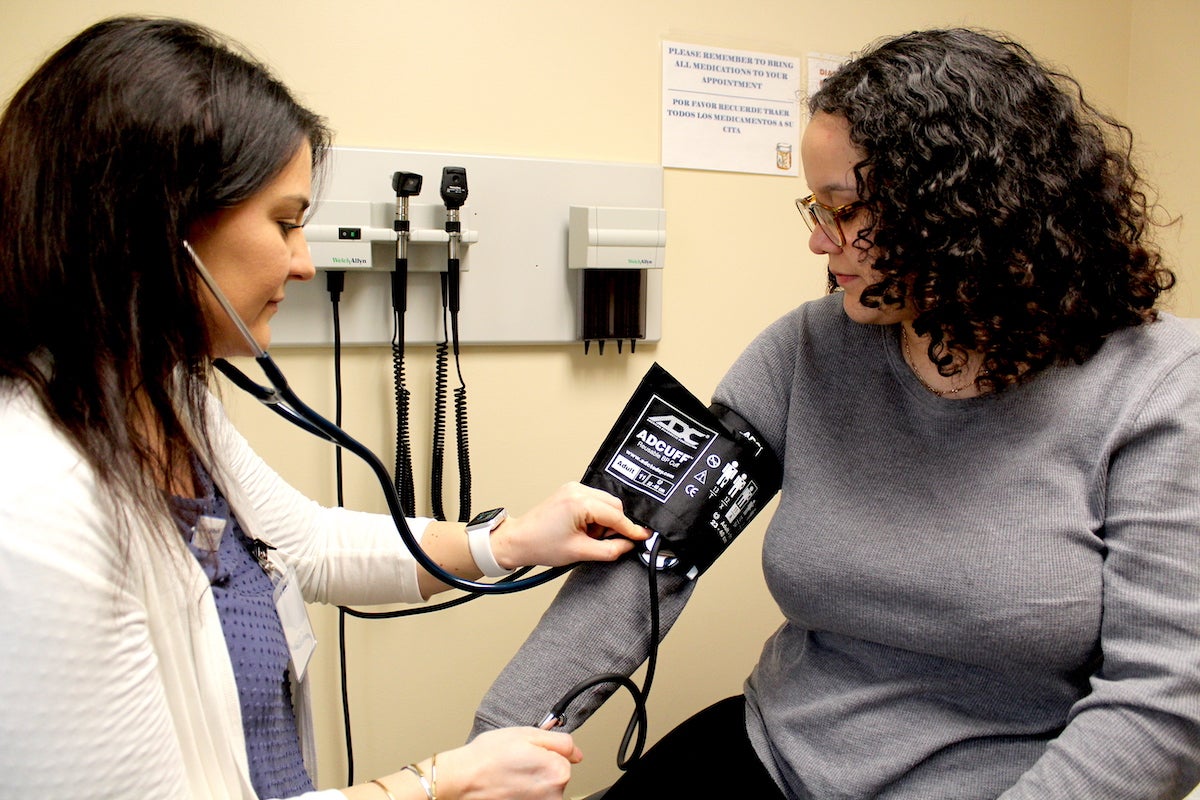$2.7 million HRSA grant provides training for expert mentors, funding for student trainees
Nurse practitioner students at URI will get more hands-on experience and expert guidance — to the benefit of the students and patients at local community health centers — thanks to a URI College of Nursing program to recruit and educate the preceptors who mentor them.
The Advanced Nursing Education Workforce program, funded by a $2.7 million federal Health Resources and Services Administration (HRSA) grant, enhances the academic clinical partnerships between the College and two community health centers — Thundermist Health Center and Providence Community Health Center. The four-year grant is the second round of funding for the program, which previously attracted a $1.8 million HRSA grant.
Students in the Adult Gerontology, Psychiatric Mental Health and Family Nurse Practitioner programs are placed in the health centers to provide primary care and behavioral health services, under the supervision of professionals in the centers whom the college recruits. In exchange for their work, the grant funds the students’ tuition during their traineeships. To incentivize potential preceptors, the program provides advanced education, including an annual conference at which preceptors receive free continuing education units, and a series of virtual classes offered via a dedicated module accessible only to qualified preceptors.

“Preceptors are a logical extension of what we are teaching in the classroom. That’s why educating the preceptors is so key,” said Associate Professor Denise Coppa, who secured the grant funding. “You can’t be teaching students one thing and then they go into the clinics and hear something else. We are using grant money on so many levels to make sure the students and preceptors are getting an education that is comprehensive, continuous and consistent with standards of practice and scope of practice.”
The program provided funding for 21 students in the most recent semester, and Coppa expects dozens more to benefit over the four-year period. The College currently works with about 100 preceptors, a number Coppa hopes will increase by as much as 20 percent. Preceptors include working nurse practitioners, doctors and physicians’ associates who provide one-on-one mentoring for nurse practitioner students and supervise the students’ clinical work in community health centers.

